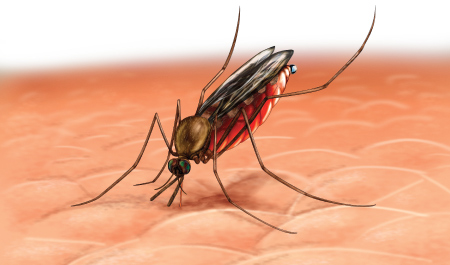US researchers develop portable early malaria detection device
May 25, 2018 | Friday | News
The device can detect a by-product generated by all species of the malaria parasite and offers the prospect of rapid screening for all malaria strains.
Image credit- medguidance.com
A team of researchers at the USC Viterbi School of Engineering in the US has developed a prototype for a portable device capable of early-stage malaria detection.
This device could play a key role in solving the global malaria crisis as malaria therapeutics are most effective after early-stage diagnosis.
The device can detect a by-product generated by all species of the malaria parasite and offers the prospect of rapid screening for all malaria strains.
The device can analyse an unprocessed, whole blood sample in 10-15 minutes and only requires five to seven drops of blood to provide a diagnosis.
The technology relies on the detection of heme, a byproduct produced by the malarial parasite as it digests haemoglobin.
The device has been designed using inexpensive, off-the-shelf components and does not require reagents so all parts are readily accessible and easily replaced.
The researchers are currently working on the next iteration of the device, with the aim of reducing the sample volume to one or two drops of blood. They also want the device to be able to operate for 30 hours with an external battery pack or be hand-powered.










